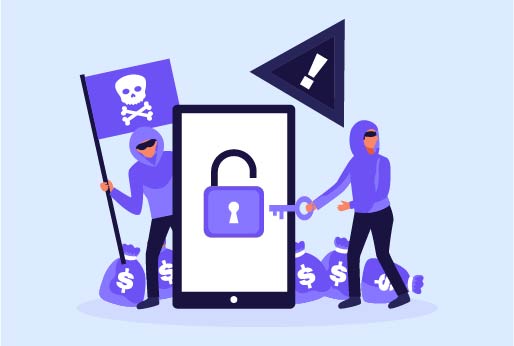
Avoiding Bitcoin Scams: A Must-Read Guide for Every Crypto User
Crypto is once again booming, so are the scams. Bitcoin smashed through the $100,000 barrier, fueled by mainstream adoption, ETF mania, and celebrity endorsements. But while investors are partying, scammers are toiling around the clock. Crypto fraud made Americans lose more than $9.3 billion in 2024, and those figures continue to rise. No longer clumsy and in-your-face, these scams have evolved.
They’re AI-powered, bespoke, and crafted by humans—from artificial support agents to deepfake CEOs requesting reassignments. With digital assets entering the realm of everyday finance, the distinction between legit and scam becomes increasingly difficult to identify.
Whether you’re an experienced trader or an inquisitive newcomer, remaining safe in this world takes more than chance; it necessitates knowledge. Let’s see the largest Bitcoin scams of 2025 and how to avoid them like a pro.
How Scammers Will Try to Steal Your Crypto in 2025: 8 Key Tactics
The crypto market is booming—but so is crypto crime. As Bitcoin breaks the $100,000 barrier and digital assets enter the mainstream, scammers are chasing the money and adapting more quickly than ever. The trends for particular crypto scams vary from year to year. In 2025, high-yield investment programs, AI-facilitated impersonations, and emotional “pig butchering” scams are dominating the threat landscape.
Here’s a closer examination of eight of the riskiest crypto scam strategies you should be aware of in 2025:
1. AI-Generated Deepfake Scams
Deepfake scams involve AI-created video or audio impersonating people you trust—celebrities, influencers, business leaders, or even family members. They want to trick you into transferring cryptocurrency or revealing personal information.
These deepfakes are no longer robotic or pixelated. They’re unnervingly real. In a single 2024 incident, a deepfake video of Elon Musk endorsing a fake crypto giveaway was streamed live on YouTube. Within 20 minutes, victims had already forwarded thousands in Bitcoin and Ethereum. By early 2025, that same scam wallet had gained more than $5 million. Some of the money traced back to exchanges such as MEXC and even darknet markets.
Protect Yourself: Always check before you believe—even if the voice or face seems familiar. Double-check verified accounts, and never click links from unfamiliar sources.
2. Pig Butchering Scams
Another of the fastest-rising types of fraud in 2025, pig butchering scams are characterized by long-term manipulation. Scammers build fraudulent online friendships (typically romantic or friendly) with victims, slowly building up their trust before pushing them to “invest” in bogus crypto trading sites.
Victims are “fattened up” emotionally and financially, left penniless.
These types of scams are especially pernicious as they don’t capitalize on urgency or fear. Rather, they target loneliness, trust, and emotional rapport. In 2024 alone, crypto losses in the U.S. due to pig butchering scams amounted to an estimated $3.2 billion, with a spike in cases among adults aged 30–55.
Protect Yourself: If an unsolicited new online contact mentions crypto or “investment opportunities” unexpectedly, drop the connection.
3. Fake Airdrops & Giveaway Scams
“Claim your free tokens now!” sounds tempting, doesn’t it? Scammers put up fake giveaways or airdrop deals, typically pretending to be legitimate projects. They will make you connect your wallet, pay a tiny “gas fee,” or provide private keys to get the rewards.
Once you do, your wallet is immediately drained.
This scam feeds on FOMO (fear of missing out), particularly in communities that are hyped about new tokens or NFT projects.
Protect Yourself: True airdrops never ask for payment or sensitive information. Always stay with official sources such as a project’s verified website or Twitter/X account.
4. Malicious Wallet Apps & Browser Extensions
With the increasing user-friendliness of crypto tools, scammers are copying well-known wallets and extensions. Such imitated applications will steal your private keys as soon as you import your wallet.
In late 2024, some fake editions of MetaMask and Phantom Wallet circulated through unofficial app stores, and thousands of wallets were compromised.
Protect Yourself: Only download wallets from official sites or reliable app stores. Never believe links sent in group chats or Telegram.
5. Fake Support Bots & Chatbot Phishing
Telegram, Discord, and even X (formerly Twitter) are full of bots pretending to be support personnel from exchanges like Binance, Coinbase, or Ledger. The chatbots are AI-powered, engaging, fast, and seem helpful—but are after your login details or seed phrase.
Others even mimic real chat windows, tricking users into providing remote access or wallet information.
Protect yourself: No legitimate support representative will ever request your seed phrase, password, or private key.
6. Rug Pulls in DeFi & NFT Projects
The DeFi and NFT mania rages on in 2025—but so does the scam. Scammers introduce promising-sounding projects, tout them on social media, and draw liquidity or investment. And then they take off, taking your cash with them.
In one 2024 case, a DeFi project that vowed to upend “green crypto mining” went dark within 72 hours of going live, siphoning off more than $12 million in TVL (Total Value Locked).
Protect Yourself: Invest only after verifying audits, real teams, locked liquidity, and an open roadmap. If you can’t locate them, flee.
7. Social Media Cloners
Thieves are cloning well-known individuals—crypto influencers, founders, and YouTubers—and contacting followers with bogus investment offers. These accounts appear genuine, but even a one-character discrepancy in the username may be your warning sign.
Most of these impersonators are currently using AI-posted messages, engagement tactics, and comment bots to look more authentic than ever before.
Protect Yourself: Double-check the username and search for verified badges. If unsure, DM the actual account before responding.
8. Pump-and-Dump Schemes
Organized pump-and-dump schemes are booming in exclusive Telegram and WhatsApp groups. Cybercriminals artificially inflate a low-cap token, pump up its price with coordinated purchases, and then dump it, leaving naive purchasers with worthless holdings.
Certain groups present themselves as elite “insider groups” or act as if they are providing “early access” to trending coins. In truth, they’re simply cashing in on your FOMO.
Protect Yourself: Genuine investment success lies not in whiff groups or pump-and-dump overnight. If something smells fishy, it likely is.
How Crypto Users Can Avoid Scams
Begin by educating yourself on the fundamentals, and understand how crypto and blockchain really function. The more you know, the simpler it is to recognize warning signs. Keep current by participating in crypto communities, reading news stories, and listening to credible voices on the internet.
When purchasing or trading crypto, stay with recognized, reputable exchanges. Deals from unknown sites can seem great, but that is usually how scams begin. Also, don’t store all your crypto in one wallet. Keep one for everyday use as a hot wallet, another for long-term storage as a cold wallet, and a third for testing new apps as a test wallet. That way, if one gets compromised, you don’t lose everything.
Be particularly cautious with someone who claims “guaranteed returns” or is pressuring you to send money quickly. Legitimate investments do involve some risk. If something doesn’t seem right, stop and verify it with someone you trust.
Use scam trackers and verify public warnings before putting your trust in a platform or token. Investigate the team, read reviews, and verify details from various sources. Always activate Multi-Factor Authentication (MFA), keep your apps updated, and double-check website URLs—sophisticated fake sites may look almost identical to real ones.
Most importantly, keep your seed phrases and private keys safe. Don’t keep them online or give them to anyone. Store them in a hardware wallet or jot them down and stash them somewhere secure. And if you’re not sure, consult a crypto-versed advisor before making drastic moves.
How to Report Crypto Scams
If you’ve been scammed by a crypto scam, don’t hesitate—report it immediately. Here’s who you should reach out to:
- Local law enforcement: They can look into scams occurring locally.
- Federal agencies: In the United States, agencies such as the FTC and FBI deal with crypto fraud cases.
- Financial regulators: The vast majority of countries have financial regulators who prevent and regulate financial scams, and those in cryptocurrency.
- Social media platforms: If you notice scams on Facebook or X, report them there as well.
When you report, send as much information as you can—like names, company information, app data, messages, emails, screenshots, and transaction records. The more you send, the greater the chance of stopping scammers.
Reporting scams saves you and others. It may even recover your stolen money and stop scammers from catching more victims. And, by coming forward with your story, you are making people aware and stopping future fraud.
How iProVPN Can Help Prevent Crypto Scams
iProVPN provides an added layer of security when you are handling cryptocurrencies. Here’s how it protects your crypto:
- Protects Your Online Privacy: iProVPN conceals your real IP address and encrypts your web traffic. It becomes extremely difficult for hackers or spammers to monitor your online activities or steal your personal information.
- Secures Public Wi-Fi: Whenever you view your crypto accounts or execute trades on public Wi-Fi (such as airports or cafes), iProVPN secures your connection from spies who attempt to sniff data.
- Blocks Spam Websites: Certain VPNs, such as iProVPN, block scam websites, phishing websites, or fake cryptocurrency platforms and direct you away from malicious websites.
- Escapes Geo-Restrictions: Certain trustworthy crypto exchanges or websites could be geo-restricted in your area. iProVPN allows you to access such websites safely by connecting via secure servers elsewhere.
Conclusion
Crypto scams are becoming smarter and more common, but staying informed and cautious can keep you safe. By learning the risks, using trusted platforms, protecting your keys, and leveraging tools like iProVPN, you can enjoy the benefits of crypto without falling victim to fraud. Stay vigilant, stay secure, and always think twice before you invest or share your info.
iProVPN encrypts your data for protection against hackers and surveillance. Unblock your favorite streaming platforms instantly with the best VPN for streaming.
Start Browsing Privately!





